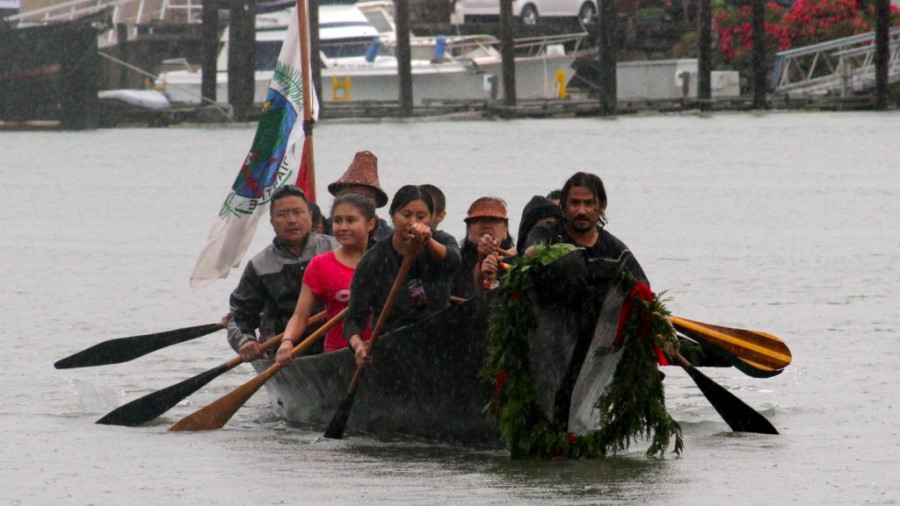Nooksack face eviction as federal government considers ‘unusual’ tribal affair intervention
Feb 10, 2022, 5:59 PM

(Photo credit Nooksack Indian Tribe)
(Photo credit Nooksack Indian Tribe)
Who is entitled to call themselves a member of an Indian tribe?
Under federal law, it normally is up to the tribe. And in the , which is headquartered in Deming, northeast of Bellingham, there is an attempt underway now to disenroll 306 tribal members because of who their ancestors were and where those ancestors lived.
Tribal leadership traces the disenrolled to Canadian ancestry from the 19th century who were not legal Nooksack. Two daughters from British Columbia were enrolled in the Nooksack tribe in the 1980s, and therefore were not included in a 1942 Tribal census, a dividing line used to determine current membership of their ancestors.
Those on the wrong side of that line are at risk of losing tribal benefits, including housing.
UN calls on US to halt evictions by Native American tribe
“The question is, are they going to be forced out of their homes or not?” former Washington Attorney General Rob McKenna told ����Xվ Newsradio’s Dave Ross.
“The tribe is saying, ‘yeah, they’re no longer members of the tribe, therefore, they don’t get to live in these houses,’” McKenna said. “These [disenrolled] folks are arguing that their due process rights have been violated.”
“The immediate issue is whether they can avoid eviction,” he continued. “So they’ve done something unusual: They have asked the federal government to intervene. It’s unusual because one of the principles of tribal sovereignty is that they get to make decisions like this for themselves. And tribal members normally don’t reach out to the federal government to ask them to intervene.”
The Nooksack Tribe consists of roughly 2,000 members, and evicting 306 is tantamount to “a pretty big fight,” McKenna offered.
“The fact that the Nooksack Tribe is keying off of the 1942 census is a decision that the tribe gets to make that the federal government does not have the power to overturn or overrule,” he explained. “And this is really about eviction from tribal housing that was created with federal funds, and whether or not these evictions should be reviewed by the federal government. It’s also about whether these alleged violations of the Federal Civil Rights Act and the Indian Civil Rights Act have merit [in terms of] the violations or alleged connection with the evictions, as opposed to the disenrollment.”
“What you have here is a group of people who have been disenrolled, and they’re trying to hold on to some of their benefits, like housing. The tribe is saying, ‘no, you don’t get any benefits. You have to move out of the housing because we control it.’”
Listen to Seattle’s Morning News weekday mornings from 5 – 9 a.m. on ����Xվ Newsradio, 97.3 FM. Subscribe to the podcast here.












